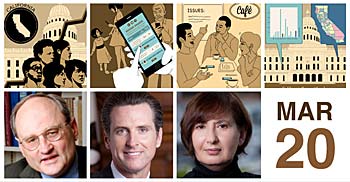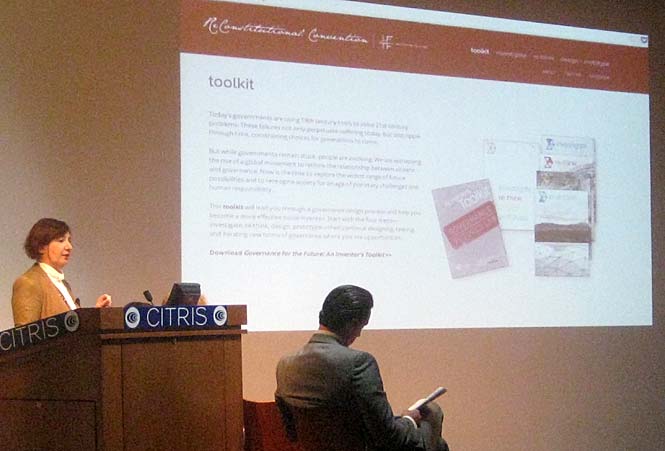Future Now
The IFTF Blog
A+? B-? Californians start grading their state
 What do Californians care about? Ken Goldberg (@ken_goldberg), robotics professor at UC Berkeley and IFTF Advisor, is asking just this question. Yesterday, his Data & Democracy Initiative team presented the first iteration of the California Report Card, an ongoing platform through which Californians can assign grades to the State of California on timely issues, as well as ideate and deliberate on those public issue areas. Since the platform's launch in January 2014, over 6,000 people from across California assigned over 20,000 grades to the state and suggested issues for the next report card. Some issues that came to the forefront included disaster preparedness and fracking.
What do Californians care about? Ken Goldberg (@ken_goldberg), robotics professor at UC Berkeley and IFTF Advisor, is asking just this question. Yesterday, his Data & Democracy Initiative team presented the first iteration of the California Report Card, an ongoing platform through which Californians can assign grades to the State of California on timely issues, as well as ideate and deliberate on those public issue areas. Since the platform's launch in January 2014, over 6,000 people from across California assigned over 20,000 grades to the state and suggested issues for the next report card. Some issues that came to the forefront included disaster preparedness and fracking.
At the public discussion on UC Berkeley’s campus, Lieutenant Governor Gavin Newsom (@GavinNewsom), Dean Henry E. Brady of the Goldman School of Public Policy, and IFTF’s Marina Gorbis (@mgorbis) each offered reactions to the California Report Card. This Report Card is one of several important attempts to bring advances in social media and high-dimensional data to political and social issues, such as PopVox or Considerit. Lt. Governor Newsom highlighted many of the failures in the current American political system, describing the need to move toward “platform thinking” and to stop “vending machine politics” that kick the system rather than engage in two-way conversation.
Marina Gorbis pointed to the work of IFTF's Governance Futures Lab in reimagining governance design, as well as the opportunities for non-legacy institutions to leapfrog political bureaucracy by adopting and adapting new technologies and data practices early. Gorbis ended the event with a sense of urgent optimism, suggesting, “We can redesign the structures around us based on our values.”

Marina presents IFTF's Social Inventor's Toolkit as a tool to help reimagine governance design.
While assessment and bias are the focus of the CRC team going forward, IFTF is excited to see California Report Card round two—maybe we are one step closer to that two-way conversation.



